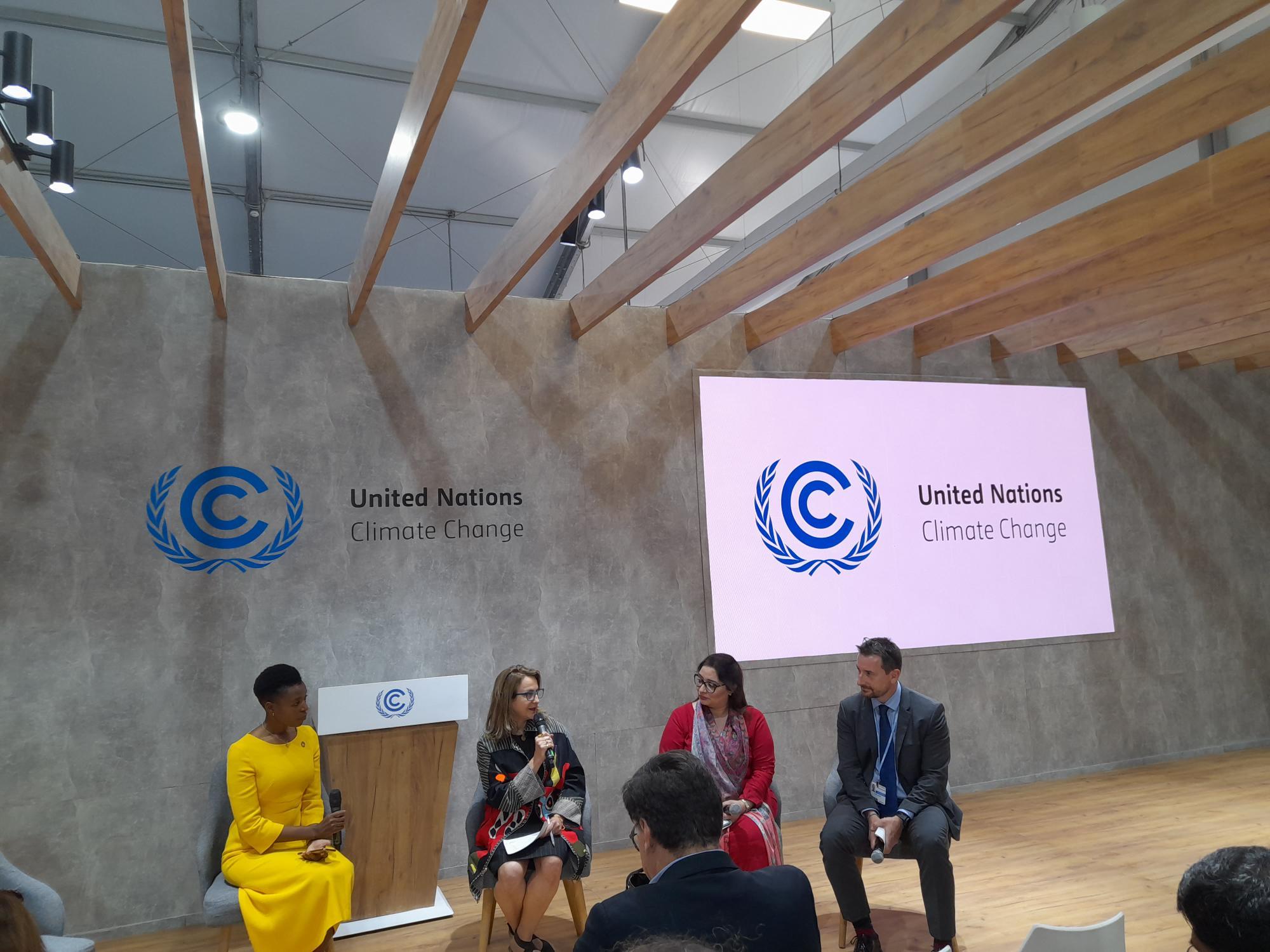Key messages:
1. The climate crisis is a humanitarian crisis. All humanitarian actors must play an active role in addressing escalating climate risks.
2. Sustainable and effective climate responses must have local priorities at their core. Local actors and at-risk communities are best placed to identify problems and solutions based in their traditional knowledge.
3. Anticipatory action is one of the practical ways that civil society can address loss and damage. We must scale up anticipatory action to meet the challenges of the climate crisis.
4. The global approach to dealing with crises is not fit for purpose. The climate crisis is exacerbating humanitarian needs and humanitarian funding; centralised approaches cannot keep up with increasing demand.
5. We need a more proactive, faster and localised humanitarian system where communities are supported to analyse risks, create plans and have access to pre-arranged financing to save more lives.
Policy asks:
1. Devolve power to local responders in developing countries. Funding and decision-making power is needed at the local level, donors must action their Grand Bargain commitments. Local actors in the poorest parts of the world are the most affected by more severe and pronounced natural hazards including flooding, heatwaves and hurricanes, and consequently affecting already precarious food insecurity challenges and migration.
2. Anticipatory action and pre-arranged disaster risk finance must be supported by scaled up funding as well as complemented and connected to wider risk management efforts within the climate, development, and humanitarian portfolios. Climate conditioning of risk models, where climate science is integrated into future simulations, is required given the challenges climate change poses for risk analysis and predicting the likelihood of future extreme events.
3. Support and fund innovative ways of addressing the climate crisis. The use of forecast-based action, insurance mechanisms and community-based innovation, including indigenous wisdom, are underexplored locally led anticipatory action approaches that can provide more dignified aid and save more lives.
EVENTS
Here is the list of events that you cannot miss, the events Start Network is speaking at are marked in orange. (All times are in EET timezone):
8 November, 11:00 - 12:00: Investing in resilience - unlocking and scaling new sources of funding or development, humanitarian, and climate finance - Resilience Hub
8 November, 14:00 - 15:00: The climate emergency is a hunger emergency: Scaling-up climate change adaptation and solutions to address loss and damage in food systems - UNFCCC Pavilion
9 November, 9:00 - 10:30: A locally-led and globally connected funding model tackling the climate crisis - LLA Pavilion
9 November, 16:00 - 17:00: Anticipatory Action – At the nexus between humanitarian, development and climate action - EU Pavilion
10 November, 9:30 - 11:15: Insurers learning to manage drought risk organised by IFE / FMSAR / France Assureurs / GFIA - Blue Zone
10 November, 19:30 - 20:00: The role and limits of humanitarian action in the face of rising losses and damages - Memphis
11 November, 10:30 - 12:00: Resilience Hub DRM#1 Comprehensive Risk Management - Resilience Hub
11 November, 14:00 - 15:30: Scaling up early warning and early action through comprehensive disaster and climate risk management - Hatshepsut
12 November, 10:30 - 11:30: Loss and Damage side event. Launch of report commissioned by the Nordic Council of Ministers - Nordic Pavilion
14 November, 09:30-10:00: Press Conference on the Global Shield Against Climate Risks
14 November, 12:00-13:00: The Global Shield Against Climate Risks: Enhancing the Global Disaster Risk Finance Architecture. High-Level Panel Discussion - CVF-V20 Pavilion
14 November, 13:15 - 15:00: The Humanitarian-Development-Climate Nexus in the Sahel. Bottom-up and country-based approaches for long-term resilience - LLA Pavilion
15 November, 14:00 - 15:30: The Role of Civil Societies in Prevention and Response to Climate-Induced Disasters - P20, Blue Zone
14 November, 15:00 - 16:30: The role of early warning, anticipatory action and effective communication for resilience building - Hatshepsut
15 November, 17:00 - 18:00: DRR Thematic Event: "What does success look like for universal early warning coverage and effective AA for all?" - Resilience Hub
16 November, 11:00 - 12:00: Amplifying local voices: from loss and damage to local climate solution - Resilience Hub
17 November, 13.15-14.45: Addressing Climate-induced Loss and Damage and Building Long-term Resilience of Vulnerable Groups - Memphis
17 November, 14:30 - 15:30: Disaster Risk Management & Humanitarian Action – Leave No One Behind: Tackling the conflict and fragility blind spot in climate finance - Resilience Hub
Make sure to join us!


